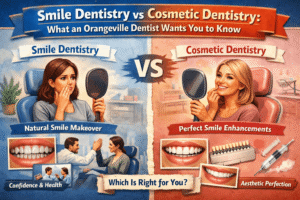Imagine waking up with a throbbing ache in your jaw, your face feeling tight and swollen, and a strange, unpleasant taste in your mouth. You might initially shrug it off as a bad toothache or a simple irritation. But what if these symptoms are actually a critical warning sign? What if they’re telling you that something far more serious is happening beneath the surface, demanding immediate attention? Ignoring severe jaw pain, noticeable facial swelling, or the tell-tale signs of a dental abscess isn’t just uncomfortable; it can be incredibly dangerous. These aren’t minor inconveniences; they’re often urgent distress signals from your body, indicating an infection that could rapidly spread and compromise your overall health.
At Viva Dental Orangeville, we understand the anxiety and uncertainty these symptoms can bring, and our mission is to empower you with the knowledge to recognize when it’s time to seek immediate professional help.
Decoding the Alarming Trio: Jaw Pain, Swelling, and Abscesses
Let’s break down what each of these powerful symptoms signifies and why, when combined, they form a critical warning sign.
Understanding Jaw Pain: Not All Pain is Created Equal
When we talk about jaw pain in an emergency context, we’re not referring to the dull ache of a cavity or the temporary sensitivity after a cold drink.

This is often a deep, persistent, throbbing pain that can radiate through your face, ear, and neck. It might be exacerbated by chewing or even just lightly touching the area.
This kind of pain is your body’s urgent alarm system, signaling significant inflammation or infection.
Facial Swelling: A Visible Sign of Trouble
Swelling in your face, especially around the jaw or cheek, is perhaps the most visually alarming symptom.
This isn’t just cosmetic; it’s a clear indicator that inflammation and fluid buildup are occurring, often due to an underlying infection.
When the swelling is sudden, rapidly increasing, or accompanied by warmth to the touch, it suggests the infection is active and potentially spreading.
The Culprit: Dental Abscesses
At the heart of many emergency jaw pain and swelling cases lies a dental abscess.
Think of an abscess as a localized pocket of pus, caused by a bacterial infection. This infection can develop for several reasons, often originating from:
- A deep cavity: Bacteria can penetrate the pulp (the innermost part of the tooth) and then spread to the bone around the tooth’s root, forming a periapical abscess.
- Gum disease: Severe gum disease can lead to an infection in the gum tissue itself or in the bone supporting the tooth, forming a periodontal abscess.
- Trauma: A cracked or broken tooth can also create an entry point for bacteria.
Regardless of its origin, an abscess signifies a bacterial invasion that your body is trying to wall off.
However, without professional intervention, this containment can fail, leading to more widespread and dangerous complications.
The Alarming Truth: Why These Are Not Just “Bad Toothaches”
One of the biggest misconceptions we encounter is the belief that a severe toothache or swelling will eventually “go away on its own,” or that taking pain medication will solve the problem.

This couldn’t be further from the truth. For a dental abscess, pain relief doesn’t equal cure. The infection remains, simmering and spreading, even if the pain temporarily subsides.
The Dangers of Delay: When Infection Spreads
An untreated dental abscess is a ticking time bomb. The bacteria within the pus pocket don’t stay contained forever.
They can spread through various pathways, leading to severe, even life-threatening conditions:
- Spread to the Jawbone (Osteomyelitis): The infection can invade the bone itself, leading to a painful and destructive bone infection.
- Spread to Surrounding Tissues (Cellulitis): Facial swelling can worsen significantly as the infection spreads into the soft tissues of the face and neck.
- Threat to Airways (Ludwig’s Angina): If the infection spreads to the floor of the mouth and neck, it can cause severe swelling that blocks your airway, making breathing and swallowing incredibly difficult. This is a life-threatening medical emergency.
- Systemic Infection (Sepsis): The most dangerous scenario is when bacteria from the abscess enter your bloodstream, leading to sepsis, a widespread inflammatory response that can cause organ damage and be fatal. Users frequently search “How long until a tooth infection kills you?” which reflects this extreme anxiety and the very real potential for dire consequences if left untreated.
Dr. Sahar Rakhshanfar and the team at Viva Dental Orangeville understand that early intervention is not just about saving a tooth; it’s about safeguarding your entire health.
Your Emergency Action Plan: When to Call Your Dentist (or the ER)
Knowing exactly what to do when faced with severe jaw pain, swelling, or a suspected abscess is crucial. Here’s a clear guide to help you triage your symptoms:
Call Viva Dental Orangeville IMMEDIATELY if you experience:
- Severe, throbbing jaw pain that doesn’t subside with over-the-counter pain relievers.
- Noticeable facial or gum swelling around a tooth or your jaw.
- A small, painful, pimple-like bump on your gums near a painful tooth (this could be a “fistula” from an abscess trying to drain).
- Sensitivity to hot or cold that lingers long after the stimulus is removed.
- Pain when chewing or biting down.
We are equipped to handle dental emergencies swiftly and compassionately. You can learn more about our patient-centered approach on our About Us page.
Go to the nearest Emergency Room (ER) immediately if you experience any of these “Red Flag” symptoms:

These indicate a spreading infection that could become life-threatening very quickly. Do not delay.
- Difficulty breathing or swallowing.
- Rapidly spreading facial or neck swelling, especially if it’s causing your eye to swell shut or extending down your neck.
- Fever and chills accompanying your pain and swelling.
- Severe nausea, vomiting, or dizziness alongside dental symptoms.
- Confusion or disorientation.
The difference between a dental office and an ER in these scenarios is critical.
While a dentist can diagnose and treat the source of the infection, the ER is equipped to stabilize systemic infections and manage immediate life-threatening complications like airway compromise.
Once stable, you will likely be referred back to a dentist for definitive dental treatment.
Debunking Dangerous Myths About Dental Emergencies
It’s common for people to try home remedies or delay seeking professional help, often due to misinformation. Let’s set the record straight:
- Myth 1: “It will go away on its own.”
- Reality: A dental abscess will not heal on its own. While the pain might fluctuate, the underlying bacterial infection will persist and likely worsen without professional treatment, eventually leading to more severe complications.
- Myth 2: “Antibiotics alone will cure an abscess.”
- Reality: Antibiotics are crucial for fighting infection, but they only suppress the bacteria temporarily. For an abscess, the source of the infection (the pus and damaged tissue) needs to be physically removed or drained. Without this, the infection will almost certainly return once the antibiotics are finished. Think of it like trying to mop up a flood without turning off the tap.
- Myth 3: “You can drain an abscess at home.”
- Reality: Attempting to drain a dental abscess yourself is extremely dangerous. It can introduce more bacteria, push the existing infection deeper into your tissues, or cause severe bleeding. This procedure should only be performed by a qualified dental professional in a sterile environment.
What to Expect During a Dental Emergency at Viva Dental Orangeville
When you arrive at Viva Dental Orangeville with emergency symptoms, our priority is to alleviate your pain and address the underlying issue swiftly and effectively.
Dr. Sahar Rakhshanfar and our compassionate team are ready to provide the urgent care you need.
Here’s what you can expect during your emergency visit:
- Immediate Assessment: We’ll conduct a focused examination to understand your symptoms and medical history. This includes a thorough visual inspection of the affected area, checking for swelling, redness, and any signs of pus.
- Diagnostic Imaging: Digital X-rays are crucial. They allow us to see the extent of the infection, identify the source of the abscess (e.g., a deep cavity, bone loss from gum disease), and assess the surrounding structures like your jawbone.
- Pain Management and Stabilization: Our immediate goal is to make you comfortable. We’ll administer local anesthesia to numb the area and discuss appropriate pain relief options.
- Treatment Planning and Intervention: Based on our diagnosis, we’ll discuss the most effective treatment options. This often involves:
- Drainage: For an active abscess, safely draining the pus is often the first step to relieve pressure and remove the bulk of the infection.
- Root Canal Therapy: If the infection originates from the tooth’s pulp, a root canal can remove the infected tissue and save the tooth.
- Tooth Extraction: In cases where the tooth is severely damaged or cannot be saved, extraction may be necessary to eliminate the infection source.
- Antibiotics: We will prescribe antibiotics to help combat the bacterial infection, especially if there are signs of spread or systemic involvement. Remember, these are usually an adjunct to, not a replacement for, physical removal of the infection.
Follow-up Care: We’ll provide clear instructions for post-treatment care and schedule follow-up appointments to ensure the infection has resolved and to discuss long-term solutions, such as dental implants if a tooth was extracted.
At Viva Dental Orangeville, we utilize the latest dental technologies and adhere to strict sterilization protocols to ensure your safety and the highest quality of teeth whitening services.
Our comprehensive range of services, from routine general dental care to specialized treatments like Invisalign treatment and TMJ therapy, ensures that you receive holistic support for your oral health needs.
Real-World Impact: The Story of Sarah
Sarah, a 34-year-old from Orangeville, initially dismissed a dull ache in her back jaw. Over a few days, the pain intensified, and her right cheek started to swell. She tried over-the-counter pain relievers, but the swelling progressed, making it difficult to open her mouth fully. Panic set in when she developed a low-grade fever. Remembering an article about dental emergencies, she immediately called Viva Dental Orangeville. Upon examination, Dr. Rakhshanfar identified a severe abscess originating from a neglected wisdom tooth. The infection was starting to spread into the surrounding soft tissues. Thanks to Sarah’s prompt action, we were able to drain the abscess, prescribe antibiotics, and schedule an urgent extraction. Sarah recovered fully, avoiding a potentially dangerous spread of infection to her deeper facial tissues or bloodstream.
Her experience underscores the critical importance of recognizing the “red flags” and seeking immediate professional care.
Frequently Asked Questions About Dental Emergencies
Q1: What exactly is a dental abscess?
A: A dental abscess is a pocket of pus caused by a bacterial infection, typically forming at the tip of a tooth root (periapical) or in the gums beside a tooth (periodontal). It’s your body’s way of trying to contain an infection.
Q2: Are jaw pain, swelling, and abscesses always dental emergencies?
A: Severe, persistent jaw pain accompanied by noticeable swelling, especially with fever or difficulty swallowing, almost always signals a dental emergency. While minor jaw pain might stem from something less urgent like TMJ issues, the presence of swelling or fever strongly indicates an active infection requiring immediate attention.
Q3: When should I go to the ER for a dental abscess or jaw infection?
A: Go to the ER immediately if you have difficulty breathing or swallowing, rapidly spreading swelling into your neck or near your eye, high fever, severe nausea, or confusion. These are signs the infection has become systemic and potentially life-threatening.
Q4: How can I get instant relief from dental abscess pain before I see a dentist?
A: While waiting for your appointment, you can try over-the-counter pain relievers (like ibuprofen or acetaminophen, following package directions). A cold compress applied to the outside of your cheek can help reduce swelling and discomfort. Do NOT apply heat directly to the face, as this can worsen an abscess. Also, do not try to drain the abscess yourself.
Q5: What happens if a tooth infection spreads to your jaw or body?
A: If a tooth infection spreads, it can lead to serious conditions like osteomyelitis (jawbone infection), cellulitis (widespread soft tissue infection in the face/neck), Ludwig’s Angina (airway obstruction), or even sepsis (a life-threatening blood infection). The bacteria can travel through your bloodstream to other parts of your body.
Q6: Can a dentist pull an infected tooth if my face is swollen?
A: Often, yes. While severe swelling can sometimes make local anesthesia less effective, a dentist can often still extract an infected tooth, or at least drain the abscess, to remove the source of infection. They may also prescribe antibiotics before or after the procedure.
Q7: How quickly can these infections become life-threatening?
A: The progression of a dental infection can vary, but serious infections, especially those causing difficulty breathing or widespread swelling, can become life-threatening very rapidly—within hours or a couple of days. This is why immediate action is so crucial when red flag symptoms appear.
Don’t Wait: Prioritize Your Oral Health Today
Your jaw pain, swelling, or a suspected abscess is not something to endure in silence or hope will disappear. It’s a critical signal that your body needs help, and quickly. By understanding these symptoms and knowing when to act, you empower yourself to protect not just your oral health, but your overall well-being.
At Viva Dental Orangeville, we are committed to providing compassionate, comprehensive care for all your dental needs, especially when emergencies arise. If you or a loved one are experiencing severe jaw pain, swelling, or suspect a dental abscess, please don’t hesitate. Contact us immediately. We’re here to help you get out of pain and back to health, serving our Orangeville community with expertise and empathy.





